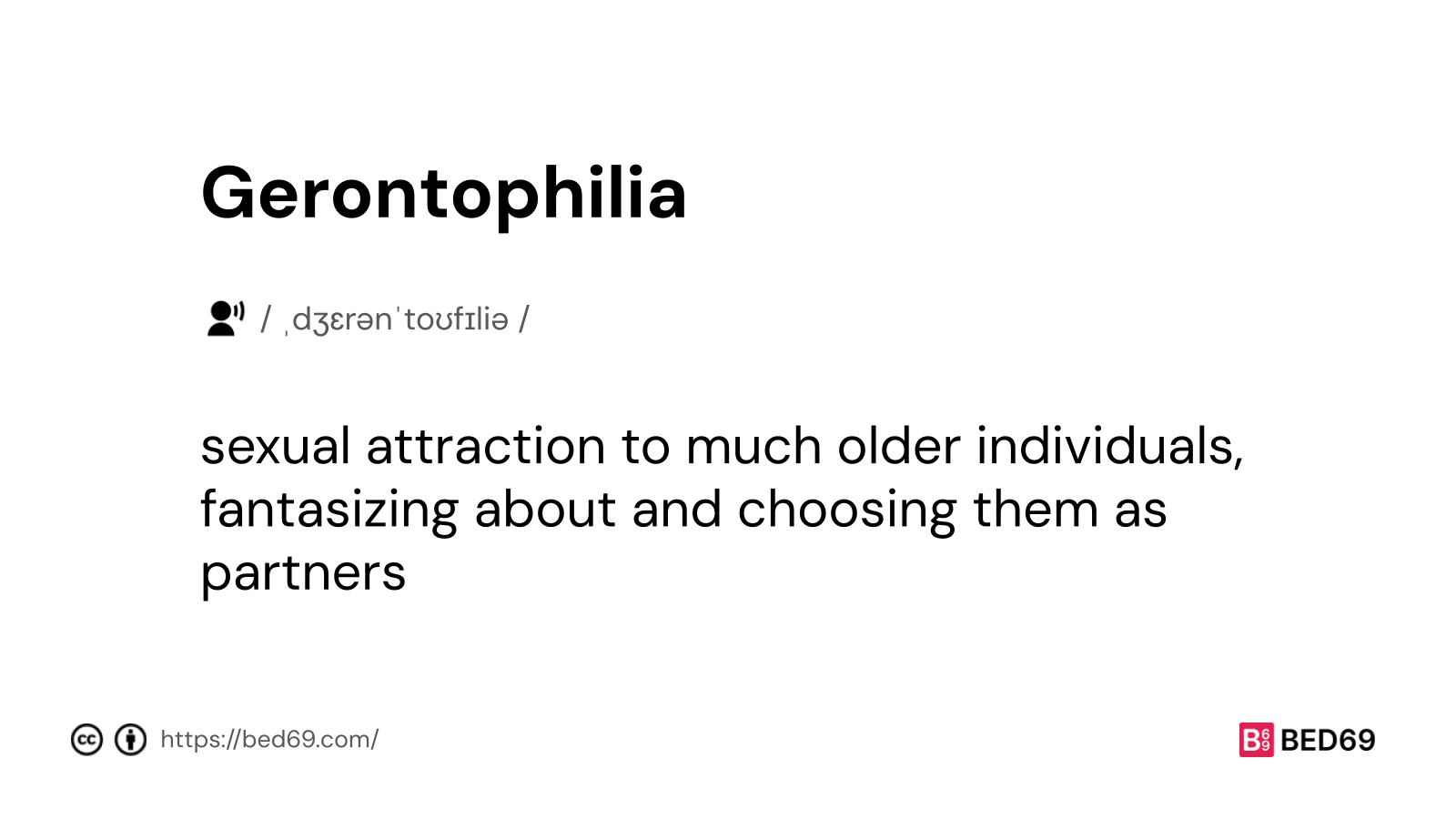What is Gerontophilia?
Gerontophilia is when someone is sexually attracted to much older individuals. These individuals, called gerontophiles, may fantasize about and choose older people as sexual partners. The term was coined by psychiatrist Richard von Krafft-Ebing in 1901, combining the Greek words for “elderly person” and “love.”
Gerontophilia pronunciation: / ˌdʒɛrənˈtoʊfɪliə /

What are the Psychological Factors Behind Gerontophilia
Gerontophilia, the attraction to much older individuals, can be influenced by various psychological factors. Gerontophiles may find older people physically appealing, drawn to attributes like wrinkles, white hair, or a sense of fragility.
For some, this preference may stem from early sexual experiences with older individuals. Despite the limited research on gerontophilia, it’s distinct from seeking financial gain and can be expressed in healthy, consensual relationships. Not to be confused with pedophilia, gerontophiles typically embrace their preference as a natural aspect of their sexuality. If concerns arise, seeking therapy like psychoanalysis or cognitive therapy can help individuals navigate their feelings in a constructive manner.
Impact of Gerontophilia on Relationships and Society
Gerontophilia can impact both relationships and society. In relationships, it may lead to challenges due to significant age differences, affecting societal norms and acceptance. Gerontophiles may face judgment or societal stigma, impacting their self-image and interpersonal interactions. Moreover, societal perceptions of gerontophilia can influence how individuals navigate their sexual preferences openly.
This may lead to isolation or difficulties in forming meaningful connections, affecting both personal well-being and societal inclusivity. Understanding the impact of gerontophilia on relationships and society is crucial for fostering empathy and promoting a more inclusive and accepting environment for individuals with diverse sexual preferences.
Explore other interesting terms:
